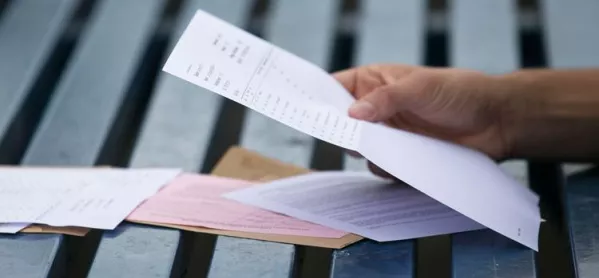- Home
- ‘Special consideration’ in GCSEs and A levels: What you need to know
‘Special consideration’ in GCSEs and A levels: What you need to know

Exams watchdog Ofqual will release figures next week on the number of GCSE and A-level papers that were given extra marks this summer because of exceptional circumstances.
Schools will finally be able to see what impact the reformed, linear GCSE and A levels this summer may have had on the number of requests for “special consideration” in the exams.
And, following a summer of tragedy, schools will finally be able to see how pupils affected by the Grenfell fire and the terror attacks in Manchester and London during the exam period were treated in the awarding process.
Here are some key questions ahead of the statistical release:
What is special consideration?
Schools are able to apply for special consideration if a pupil was disadvantaged during their exams.
After all the requests have been made, exam boards look at two categories when deciding whether to adjust a candidate’s marks as part of the special consideration process. These are:
- Mark adjustment - for candidates who were present for an assessment but were disadvantaged in some way, such as illness. In these cases, a small percentage is added to the raw mark.
- Qualification award - for candidates who were absent from an exam for a valid reason. In these cases, a mark is calculated for the missing unit - but only if the student has completed enough of the specification to meet the minimum requirements set out by exam boards.
Have the requirements for special consideration changed?
Last year, the exam boards required candidates who requested a qualification award - but who had been absent from exams - to have completed at least 40 per cent of the assessments for a subject.
But Tes revealed in July that the exam boards decided to lower this to 25 per cent for summer 2017.
The exam boards’ decision to significantly lower the threshold followed the tragic events of the summer, as well as the introduction of more linear GCSE and A-levels.
Are we likely to see a rise in requests from schools?
The number of requests for special consideration has increased in recent years - as has the number of requests that have been approved by exam boards.
And last year was no different. Figures released by Ofqual revealed that the number of requests increased by 4 per cent and the number of approved requests rose by 5 per cent from 2015 to 2016.
Flooding, injury and illness led to a record number of exam papers being given extra marks.
Now that the thresholds have been lowered - and because the summer exams count for much more under the new linear qualifications - it is very likely that the number of requests will surge.
How might the Grenfell fire and the terror attacks affect requests?
The lower minimum requirements - brought in because of the events this summer - will have likely triggered many more schools to make requests if their pupils were caught up in the tragedies.
The three major incidents happened within just 23 days of each other - the Manchester Arena bombing, the London Bridge attack and the Grenfell Tower fire - all in the middle of exams.
Teenagers from across the country were at Ariana Grande’s concert in Manchester and some pupils insisted on sitting their exams the day after the Grenfell Tower fire - even if they lived there.
It is true that exam boards have always had to take into account significant events that might affect entire school cohorts - but summer 2017 was a particularly unique situation.
As a result, it is very likely that this summer’s events - which affected children across the country and which took place during the main exam season - will see a marked rise in requests.
Want to keep up with the latest education news and opinion? Follow Tes on Twitter and Instagram, and like Tes on Facebook
Register with Tes and you can read two free articles every month plus you'll have access to our range of award-winning newsletters.
Keep reading with our special offer!
You’ve reached your limit of free articles this month.
- Unlimited access to all Tes magazine content
- Save your favourite articles and gift them to your colleagues
- Exclusive subscriber-only stories
- Over 200,000 archived articles
- Unlimited access to all Tes magazine content
- Save your favourite articles and gift them to your colleagues
- Exclusive subscriber-only stories
- Over 200,000 archived articles



